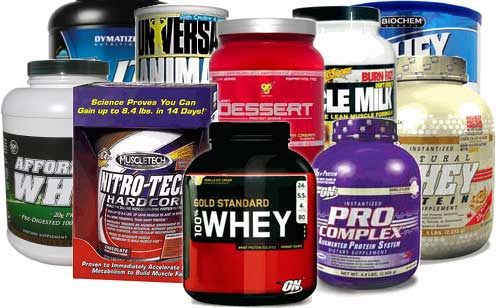Note: I am not a big proponent of supplements, so my answers might be skewed in that direction. I believe that if you monitor your diet, you should be able to get all the vitamins and minerals you need. I understand that not everyone can eat like a rockstar, so daily vitamins and supplements are ideal.
Q: "I am taking "Greens+Multi+" once every morning, it is this powder you mix in water or juice. It is from GNC. Should I still take my daily vitamin too?" -Barbara
A: First off, I'd like to remind everyone that vitamins and minerals do not provide energy. They help support cell growth and maintenance, which helps your body use food more efficiently for fuel, but they themselves provide no energy. I also want to note that the water soluble vitamins (B6, B12, C, Thiamin, Riboflavin, Niacin, Folate, Pantothenic acid, Biotin) rarely reach toxic levels in the body; the body excretes these vitamins if blood levels rise too high. The fat-soluble vitamins (A, D, E, K) are stored in fat, and are flushed out slower, thus it is more likely to build toxic levels. So Barbara, click here and look at your list of vitamins and minerals found in your supplement and compare to your daily vitamin. I assume that they have similar levels of vitamins and minerals. You are probably okay picking one or the other in combination with a healthy diet. Just note that your body has an easier time using vitamins and minerals that come from natural sources instead of pill and powder form.
Q: "What's the proper way to use protein supplements (powder) if you don't want to gain weight but just stay full? Say for a meal supplement" -Allyce
A: Great question! Those who are looking for a meal supplement in protein powder often have trouble keeping the calories on the lower side. Once people add everything they want to a smoothie with protein powder, it comes out to 500+ calories. On the other hand, many guys use protein shakes as a muscle building snack (usually after workouts) and don't care so much about the calorie count. If you want a low-cal meal supplement, start with a low-cal, low-fat, low-sugar powder (these usually don't taste the best, but they're out there). Second, add 1/2c frozen berries. Berries are the fruit with the lowest sugar and calorie count. Third, add half a banana (optional), water (or milk depending on how many calories you want), and ice. This recipe has a good balance of flavor and calorie count, but I've seen many people just mix protein powder with water or milk.
Q: "What's your thought on CLA?" -Bryan
A: Conjugated Linoleic Acid is being studied for it's affects on weight management. The current studies are not proving much of any claim. There were no significant figures in weight loss or body fat regain. Learn more here. Also, if you know your fats well, you recognize "linoleic acid" as a polyunsaturated essential fatty acid. Essential meaning your body doesn't make these fatty acids, so you have to get them from food sources. Linoleic specifically is Omega 6. Conjugated linoleic is a slightly different/altered form, but can be found naturally in grass-fed meats and eggs. As stated here, men need about 17 grams of linoleic acid a day. And as you can see on the label, this supplement only offers 4% of your daily needs. You can get plenty of omega 6s by eating nuts, healthy oils, and soy products!


.jpeg)
I take powder as a protein supplement.. protein supplements
ReplyDelete